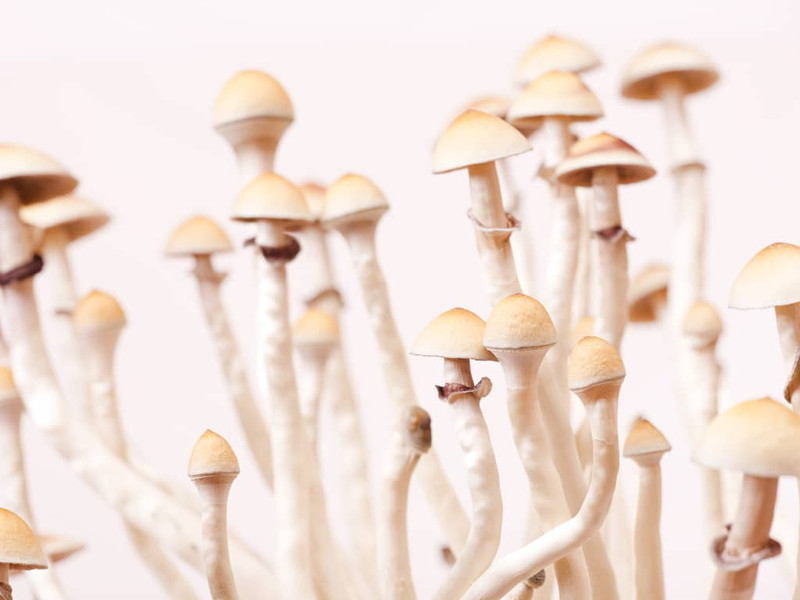Overcoming Mycophobia: Mushroom Benefits
Posted by Troy Cosky, Founder FunGuy Grow Supply on 19th Apr 2023

The Truth About Fungi and Mycophobia
Throughout history and in various cultures worldwide, mushrooms have been an essential dietary component. Despite the mushroom's popularity, myths about them have created misunderstandings. One of these is mycophobia - an irrational fear of mushrooms and mold. Unfortunately, this phobia of mushrooms disables individuals from receiving its medicinal nutritional value. These nutrient-dense fungi contain vitamins like D and B, among other minerals. Some species are renowned for their immune-boosting effects, making them a beneficial addition to any diet.
Here are some of the benefits of consuming mushrooms:
- Helps in reducing inflammation
- Boosts heart health
- Enhances immune function
- Provides essential vitamins and minerals
The Science Behind Mycophobia
Fungi are diverse organisms that play vital roles in ecosystems as decomposers, symbionts, and pathogens. However, there exists a perception that all fungi are harmful and toxic - which is not true. Some molds like penicillin help fight off disease-causing bacteria, whereas other edible mushroom species provide health benefits. Mycophobic individuals do often generalize when it comes to different kinds of fungi; seeing them all as threats regardless of their biological properties might be dangerous for one's physical well-being since most fungal infections aren't deadly: only rare varieties tend to contain toxins requiring immediate medical attention upon ingestion.
Here are some of the misconceptions about fungi:
- All fungi are harmful and toxic
- All mushrooms are poisonous
- All fungal infections are deadly

It's also possible for emotional triggers like underlying trauma or anxiety disorders to initiate the development of phobia towards pathogens - this occurs mostly after prolonged exposure in uncontrolled conditions.
Nutritional Value and Health Benefits of Mushrooms
With different cuisines placing importance on various forms of fungus for ages now, primarily due to unique flavors traditionally ingrained based upon cultural inheritance, evidence from more recent scientific literature suggests that this delicacy shouldn't just represent culinary opulence but an even greater array of worthwhile medicinal values as well.
Some benefits of mushrooms include:
- Natural immune enhancers
- Vitamin sources (including D and B vitamins)
- Copper and selenium mineral supplement trends

The world of research is constantly exploring the potential benefits that fungi could have on our wellbeing. One particularly exciting area of study lies in the relationship between mushrooms and mental health. Certain species like Lion's Mane and Reishi are showing promise as important contributors to maintaining a strong brain and optimal cognitive function. Scientific studies suggest that these varieties can even play a role in alleviating symptoms of prevalent conditions such as depression and anxiety. Mushrooms for mental health may very well be another part of nature's powerful toolbox when it comes to keeping our minds healthy - further studies will tell!
Exploring Mental Health Benefits of Certain Mushroom Species

Mushrooms are a highly nutritious food that is often overlooked. They contain various essential vitamins including B2 (Riboflavin), B3 (Niacin), and B5 (Pantothenic Acid) as well as vital minerals such as copper (rarely found elsewhere) and selenium - lowering chronic disease propensities due to enhanced immunity. Incorporating them in your meals leads to less calorie intake while providing high levels of proteins comparably higher than meat or eggs making it easier towards weight management. Additionally, they include great amounts of antioxidant-rich compounds like ergothioneine, which counterbalances oxidative stress. This makes incorporating nutrient-rich types like Shiitake, Maitake, Lion's Mane, for example, ideal for contributing to overall health & wellness.
Sustainable Agriculture with Mushroom Cultivation
In addition to providing significant nutritional and medicinal advantages, research shows that the potential role for these fascinating fungi goes beyond healthcare. Mushrooms have an important part to play in promoting sustainable practices within agriculture and food systems.

- Mushrooms can grow without requiring soil, saving on cost and contributing to more efficient use of resources.
- Oyster mushrooms can be grown effectively on agricultural waste, providing an all-round eco-friendly food choice option.
- This ingenious process means fewer resources are required at every stage - when you think of how much energy gets put into standard farming, you'll see why this benefit has caught so much attention already.
Treating Mycophobia

Treatment options for mycophobia vary depending on its severity and resulting effects upon daily life. However, commonly recommended methods utilized in addressing phobias such as cognitive behavior therapy (CBT), mindfulness meditation, body-based therapies like chiropractic and acupressure, coupled with natural remedies, often aid during the gradual exposure process. This process involves being gradually exposed until safe levels are perceived by the patient under the supervision of responsible professionals (doctor/counselor).
Advocating Sustainable Practices for a Better Future
Mycophobia can impact one’s everyday routine drastically; thus treating it early-on helps achieve wholesome lifestyle factors built around engagement with outdoor surroundings enriched by fungal and microbial species! Addressing Mycophobia requires actively working towards breaking down stigmas attached explicitly by understanding mushrooms’ fundamental role in society - both historically and biologically – as fungi are valuable components contributing significantly toward maintaining balance within ecosystems.
The upcoming generation holds immense potential becoming ambassadors shaping consciousness among peers through advocating environmental sustainability balanced healthy risk-taking habits fueled utilizing 'mushroom-power' in bringing immense benefits into daily life through measured regular fungi incorporation.
Are you looking to improve your mental and physical health with nutritious mushrooms? Visit FunGuy Grow Supply for premium mushroom grow kits including Shiitake, Maitake and more! Start cultivating today.
References
Journal Articles
- Mushrooms and Health Summit Proceedings. The Journal of Nutrition, vol. 143, no. 7, 2013, pp. 1128S–1136S. https://doi.org/10.3945/jn.113.176636
- Cheung, Peter CK. The nutritional and health benefits of mushrooms. Nutritional Bulletin, vol. 36, no. 4, 2011, pp. 298-308.https://doi.org/10.1111/j.1467-3010.2010.01859.x
- Mattila, P., et al. Contents of Vitamins, Mineral Elements, and Some Phenolic Compounds in Cultivated Mushrooms. Journal of Agricultural and Food Chemistry, vol. 49, no. 5, 2001, pp. 2343–2348. https://doi.org/10.1021/jf001525d
- Phan, C. W., et al. Therapeutic Potential of Culinary-Medicinal Mushrooms for the Management of Neurodegenerative Diseases: Diversity, Bioactive Molecules, and Mechanisms. International Journal of Molecular Sciences, vol. 20, no. 23, 2019, pp. 5572.https://pubmed.ncbi.nlm.nih.gov/24654802/
Books
- Stamets, P. Growing Gourmet and Medicinal Mushrooms. Third Edition, 2000. Ten Speed Press. ISBN: 9781580081757

